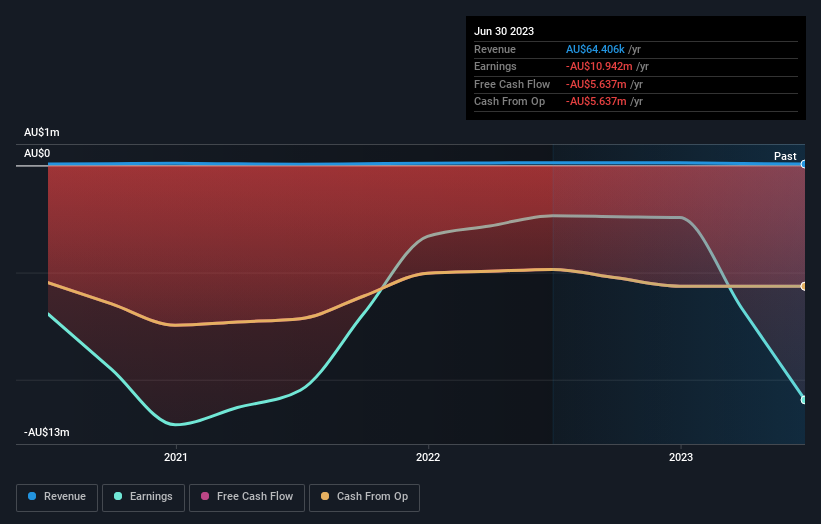With 51% ownership, Audio Pixels Holdings Limited (ASX:AKP) insiders have a lot riding on the company's future
Key Insights
Insiders appear to have a vested interest in Audio Pixels Holdings' growth, as seen by their sizeable ownership
A total of 6 investors have a majority stake in the company with 51% ownership
Past performance of a company along with ownership data serve to give a strong idea about prospects for a business
A look at the shareholders of Audio Pixels Holdings Limited (ASX:AKP) can tell us which group is most powerful. The group holding the most number of shares in the company, around 51% to be precise, is individual insiders. Put another way, the group faces the maximum upside potential (or downside risk).
With such a notable stake in the company, insiders would be highly incentivised to make value accretive decisions.
Let's take a closer look to see what the different types of shareholders can tell us about Audio Pixels Holdings.
Check out our latest analysis for Audio Pixels Holdings
What Does The Lack Of Institutional Ownership Tell Us About Audio Pixels Holdings?
We don't tend to see institutional investors holding stock of companies that are very risky, thinly traded, or very small. Though we do sometimes see large companies without institutions on the register, it's not particularly common.
There are many reasons why a company might not have any institutions on the share registry. It may be hard for institutions to buy large amounts of shares, if liquidity (the amount of shares traded each day) is low. If the company has not needed to raise capital, institutions might lack the opportunity to build a position. Alternatively, there might be something about the company that has kept institutional investors away. Audio Pixels Holdings might not have the sort of past performance institutions are looking for, or perhaps they simply have not studied the business closely.
Hedge funds don't have many shares in Audio Pixels Holdings. With a 19% stake, CEO Frederick Bart is the largest shareholder. Meanwhile, the second and third largest shareholders, hold 9.8% and 6.7%, of the shares outstanding, respectively.
We did some more digging and found that 6 of the top shareholders account for roughly 51% of the register, implying that along with larger shareholders, there are a few smaller shareholders, thereby balancing out each others interests somewhat.
Researching institutional ownership is a good way to gauge and filter a stock's expected performance. The same can be achieved by studying analyst sentiments. Our information suggests that there isn't any analyst coverage of the stock, so it is probably little known.
Insider Ownership Of Audio Pixels Holdings
The definition of an insider can differ slightly between different countries, but members of the board of directors always count. Company management run the business, but the CEO will answer to the board, even if he or she is a member of it.
I generally consider insider ownership to be a good thing. However, on some occasions it makes it more difficult for other shareholders to hold the board accountable for decisions.
It seems that insiders own more than half the Audio Pixels Holdings Limited stock. This gives them a lot of power. That means they own AU$150m worth of shares in the AU$295m company. That's quite meaningful. It is good to see this level of investment. You can check here to see if those insiders have been buying recently.
General Public Ownership
The general public, who are usually individual investors, hold a 32% stake in Audio Pixels Holdings. While this group can't necessarily call the shots, it can certainly have a real influence on how the company is run.
Private Company Ownership
It seems that Private Companies own 17%, of the Audio Pixels Holdings stock. It's hard to draw any conclusions from this fact alone, so its worth looking into who owns those private companies. Sometimes insiders or other related parties have an interest in shares in a public company through a separate private company.
Next Steps:
It's always worth thinking about the different groups who own shares in a company. But to understand Audio Pixels Holdings better, we need to consider many other factors. Consider for instance, the ever-present spectre of investment risk. We've identified 4 warning signs with Audio Pixels Holdings , and understanding them should be part of your investment process.
If you would prefer check out another company -- one with potentially superior financials -- then do not miss this free list of interesting companies, backed by strong financial data.
NB: Figures in this article are calculated using data from the last twelve months, which refer to the 12-month period ending on the last date of the month the financial statement is dated. This may not be consistent with full year annual report figures.
Have feedback on this article? Concerned about the content? Get in touch with us directly. Alternatively, email editorial-team (at) simplywallst.com.
This article by Simply Wall St is general in nature. We provide commentary based on historical data and analyst forecasts only using an unbiased methodology and our articles are not intended to be financial advice. It does not constitute a recommendation to buy or sell any stock, and does not take account of your objectives, or your financial situation. We aim to bring you long-term focused analysis driven by fundamental data. Note that our analysis may not factor in the latest price-sensitive company announcements or qualitative material. Simply Wall St has no position in any stocks mentioned.

 Yahoo Finance
Yahoo Finance 

